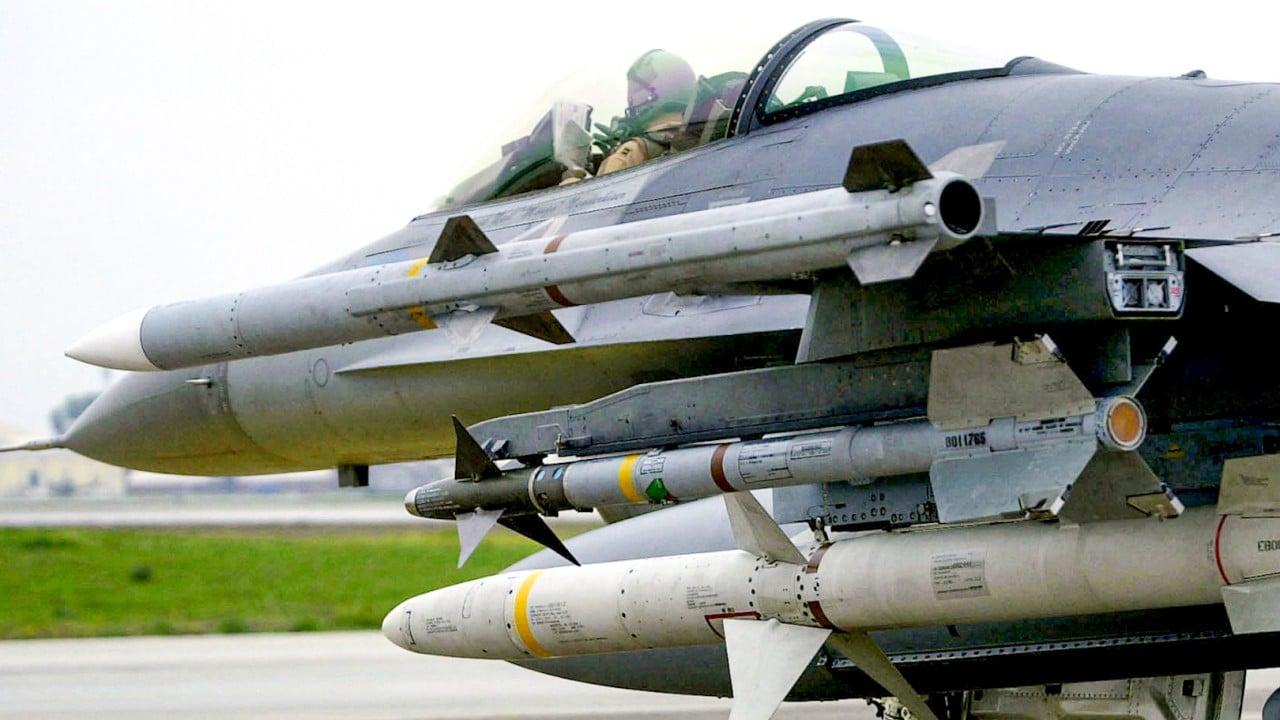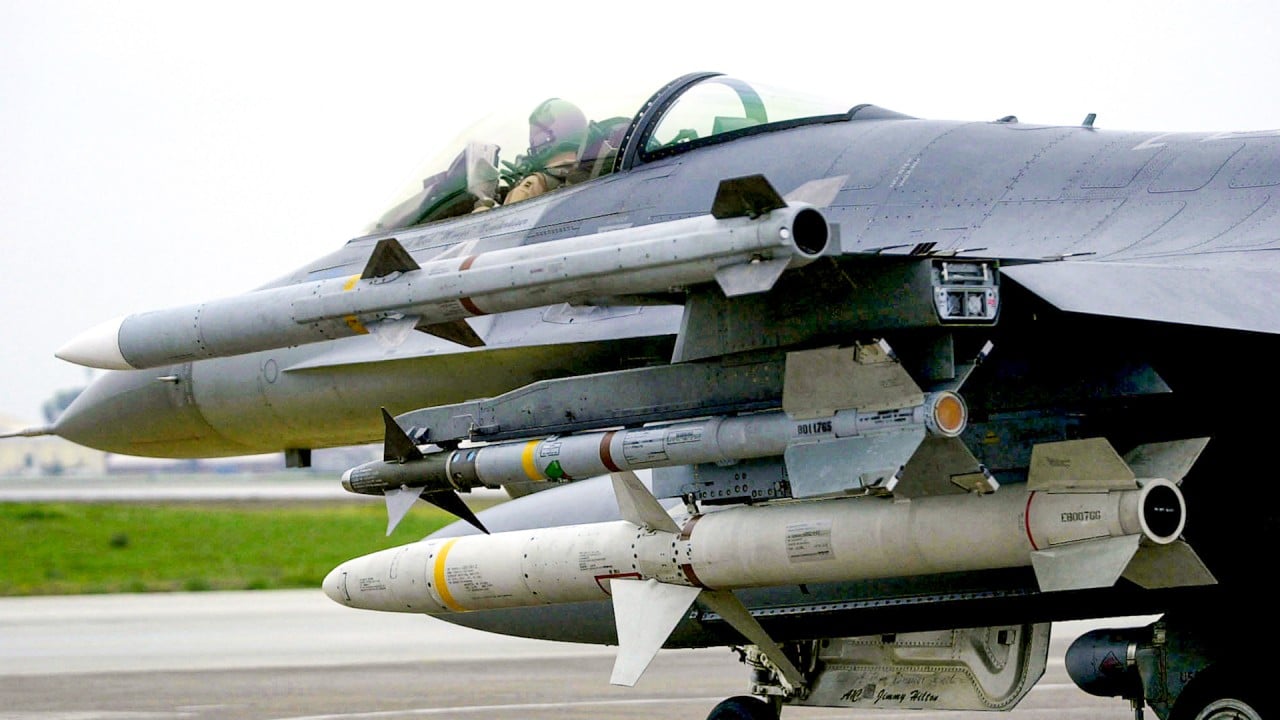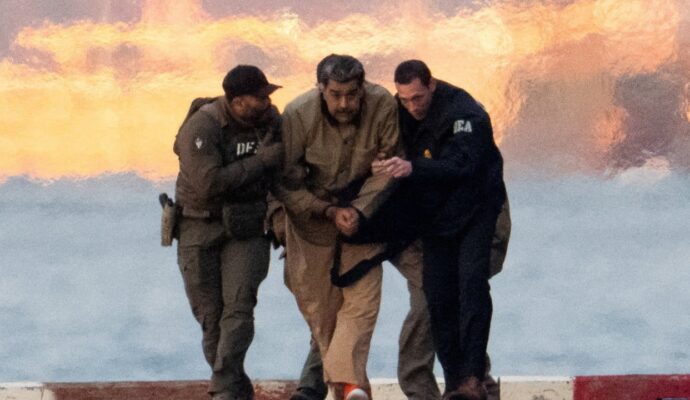
It comes as tensions are soaring across the Taiwan Strait, with concern growing that Beijing might try to take the self-ruled island – which it sees as its territory – by force in the next few years.
Beijing’s defence budget was also unveiled on Sunday, up by 7.2 per cent to 1.5537 trillion yuan (US$224.9 billion) – a slight increase from last year’s 7.1 per cent growth.
Taiwan’s presidential election is meanwhile looming early next year, and some analysts in Beijing say there is a shift in public opinion on the island towards peace and opposing provocations by the ruling Democratic Progressive Party, which has rejected the one-China principle.
The more moderate tone on Taiwan also comes as the United States is seeking closer ties with the island. That includes two rounds of trade talks under the new US-Taiwan Initiative on 21st-Century Trade, an effort to boost economic ties opposed by Beijing. Taipei and Washington indicated during talks in January that they could reach agreement on issues such as trade facilitation and the promotion of good regulatory practices.
Li said Beijing had resolutely fought against separatism and countered interference. He was referring to People’s Liberation Army activities last year such as the unprecedented drills held around Taiwan after then-US House speaker Nancy Pelosi visited Taipei, and regular warplane sorties near the island.
The outgoing premier said Beijing would adhere to the one-China principle and the 1992 consensus and promote the peaceful development of cross-strait ties, while the process of “peaceful reunification” would be advanced.
“We should encourage people on both sides of the strait to jointly promote Chinese culture and advance China’s rejuvenation,” Li said to loud applause from the nearly 3,000 National People’s Congress deputies watching on in the Great Hall of the People.
Relations have deteriorated across the strait since Tsai Ing-wen, of the pro-independence DPP, was elected president in 2016. Tsai refused to endorse the 1992 consensus – a tacit understanding that both sides recognise that there is only one China, but each can have its own interpretation of what that means.
Exchanges between the two sides have been largely suspended since then, and Beijing has repeatedly said it would not rule out the use of force to bring Taiwan under its control and stepped up military intimidation of the island.
Russia’s invasion of Ukraine has fuelled concerns that Beijing could launch an attack on Taiwan, while Beijing has urged the world not to draw parallels between Ukraine and Taiwan.
[embedded content]
Responding to Li’s report, Taiwan’s Mainland Affairs Council said in a statement that Beijing should handle cross-strait issues in a rational and equal way, with mutual respect.
It also called on the leadership in Beijing to accept that “the two sides of the Taiwan Strait are not affiliated with each other”, to respect Taiwanese people’s adherence to democracy and freedom, and to give up political coercion.
There have been signs in recent months of efforts by Beijing to promote cross-strait exchanges. That includes talks in February in Beijing between Song Tao, the new head of the mainland’s Taiwan Affairs Office, and a delegation of senior Taiwanese politicians led by Andrew Hsia, vice-chairman of the opposition Kuomintang party.
Beijing also resumed imports early this year from more than 60 Taiwanese food suppliers that had been barred, and indicated it would continue to restore transport links between Taiwan and mainland China that were suspended because of Covid-19 restrictions and political tensions.
Zhang Wensheng, deputy dean of the Taiwan Research Institute at Xiamen University, said mentions of Beijing’s policy on Taiwan in the government work report were “moderate”.
“In the coming stage, restoring and promoting cross-strait exchanges, and promoting the peaceful and integrated development of cross-strait relations will be the focus of the Taiwan policy,” Zhang said.


